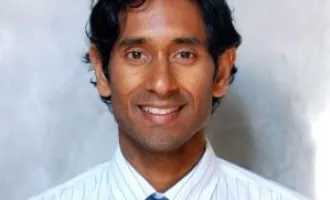Student Wellness and Diversity: The Need To Do More
As your executive vice chancellor and provost, I facilitated the annual Chancellor’s Leadership Diversity Forum on April 27. During the Q&A, Engie Salama, second-year School of Pharmacy student, demonstrated her courage by describing the challenges she and others face in the rigorous learning environment at UCSF, the mental health consequences, and the question of what more could be done to provide support.
Aaron Mattingly’s opinion piece, “Leadership or Lip Service,” in Synapse from two weeks ago, describes his reaction to my response, which I understand. It sent a clear message to UCSF leadership that we must delve further into how UCSF can support your well-being.
In response, I first send my deepest apology to Engie for not appreciating and acknowledging the unique circumstances of her own, personal experience as a student at UCSF. She and I had a chance to meet and exchange ideas about her concerns and related issues.
Second, the following provides some additional context:
When Engie described feeling overwhelmed by what is being expected of her as a student at UCSF, my first reaction was to try and convey that she is not alone. Surveys have consistently shown that the academic pressures and lifestyle demands of participating in health professions and graduate programs have an adverse impact on mental health in at least 25-30% of students.
This burden is clearly magnified when someone has the experience of marginalization or isolation, let alone outright discrimination, by virtue of being from an underrepresented group. We have an obligation to change this disturbing reality.
While this general experience – i.e., of feeling overwhelmed by the expected level of performance – is common to students at virtually all the premier life sciences/healthcare universities in the country, it does not absolve us of the responsibility to effectively mitigate these challenges at UCSF. We must acknowledge the many personal matters that come into play, whether they are proximity to family and friends, financial security, sense of inclusion or countless others.
We’d like to follow up on Engie’s question about the resources available to help navigate the challenges, both generic and highly personal, that many students experience during their education here at UCSF:
- The Office of Diversity and Outreach launched an Allyship Campaign, which now includes Wellness Wednesdays, Diversity Graduation, Real Talk Dialogues, and a host of other relevant programming including services for DACA students.
- In addition to individual counseling, Student Health and Counseling (SHC) hosts several options like Interactive Stress and Depression Screening and its Hump Day Series. SHC also partners with other campus units like the Multicultural Resource Center and the School of Pharmacy to offer opportunities for support such as Thriving in the Wake of Cultural Trauma and the Let’s Talk pilot program.
- And remember, the Office of the Ombuds is a safe, confidential place to discuss campus-related issues and explore possibilities for informally addressing concerns.
These offices are not static – their teams are dedicated to serving you and developing new ways to do so. We encourage you to avail yourself to all of the programs and services listed above as well as talk with your associate dean of education and student affairs leaders for specific programs options within your own programs:
- Graduate Division – Associate Dean Elizabeth Silva
- School of Dentistry – Associate Dean Sara Hughes
- School of Medicine – Associate Dean Lee Jones
- School of Nursing – Associate Dean Judy Martin-Holland
- School of Pharmacy – Associate Dean Cynthia Watchmaker
To that end, I am thankful to Engie and Aaron. Their thoughtful actions have sparked a dialogue that already has prompted much discussion among the faculty and staff. We look forward to working closely with you to generate new ideas and take very tangible steps that will help all of you thrive at UCSF.


